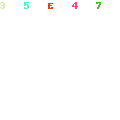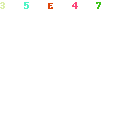
Sandy Nathan, award winning author, rides her horse for the first time after having her ankle fused. Little did she know that getting over writer’s block would be harder.
I wrote an introductory article on unlocking writers block a few weeks ago. (The one illustrated with photos of us trying to get a horse into a trailer.) After three weeks of vacation in New Mexico, I’m home and happily and productively working on the rewrite of Mogollon, sequel to my award winning novel, Numenon.
What did it take for me to break through the dreaded block?
Well, I stepped in a rut in the driveway with my fused ankle about three days into my vacation and spent the next two weeks in great pain and unable to walk. Before that, I had in a kidney infection along with a major flu.
That’s right, I had a kidney infection at the same time as the flu.
Is suffering necessary to break through writer’s block?
It was for me.
I put a longer and deeper write up of my experience these last few weeks on my personal blog (SandraNathan.net). Here, I summarize a few key learning points that may help you deal with your dragons:
1. Accept and surrender. If you’re unable to write what you want, or reach the depth that you know you’ve got with your writing, acknowledge it. You don’t have to like it or embrace it, just accept the fact you’re blocked. And surrender to the fact. Journal about it. Write a blog article or entire book about it.
2. If you don’t accept your blocked state and surrender to it, you can search the Net for tips and techniques to deal with writer’s block and paralysis. You’ll find lots: Try them all. Maybe they’ll work. Chances are they won’t. When you discover this, accept your block and surrender to it.
3. Hit bottom. I did this in my idyllic New Mexico escape, bruised ankle propped on pillows and my foot and lower leg––all the way to the knee––looking like an angry eggplant. That was after I got over the kidney infection and flu.
4. Truly give up. Hand your whole life over to your Higher Power. If you don’t have a Higher Power, make One up.
5. Note that the universe really is in control of your life, not you, despite what The Secret says. Healing is a combination of grace and self effort. When you surrender, the spooky stuff starts happening. For instance, when I finally hit as bottom as I’ve been in recent years, I decided to read by book club’s selection for the next month, which was:
6. Left to Tell: Discovering God Amidst the Rwandan Holocaust by Immaculee Ilibagiza. This best-selling book tells the story of how Immaculee Ilibagiza survived the murder of one million of her fellow Tutsi tribe members by rampaging Hutus. She hid in a 3 X 5 bathroom in Rwanda with 7 other women for 3 months. This book is a miracle, the finest example of contemporary Christian mysticism I have read. It jolted me into contact with my spiritual roots and provided the ground of my healing.
7. It’s also evidence that writer’s block is not the worst thing that can happen to you.
8. Neither are low book sales.
9. You don’t have to be obsessed with your on-line sales, the number of blogs you write on, your web site stats, or anything about the world of writing.
10. Life would go on if you never wrote another word.
11. You might even enjoy your life more.

Freedom is letting go of attachment and aversion. No more: "I gotta have it," alternating with "I’d better run from him/her/it." Freedom is our birthright.
This is freedom. Once you attain this knowledge that you don’t need to write and the inner state that goes with it, the fountain of creativity inside of you may start to bubble again. You may get new angles for the book you were working on. You may WANT to write. You may be able to write.
Or not. You may want to run screaming from the literary world.
Try my method: Drop everything. Get to a dead stop. See what your soul says to you about your writing and your life. Do what it says.
I’m back at work writing, but in a different way. No more pounding the keyboard until my shoulders won’t move and my wounded ankle feels like it’s poured full of molten lead. No more obsessing.
I’m doing things differently and letting the immense love and good will of the universe carry me forward. If my stuff is supposed to sell, it will because people find value in it––and in getting to know me.
In God we trust, right? That’s the title of that other article I wrote about my recent three weeks of high altitude spiritual regeneration in Santa Fe.
Two more tips that could radically improve the level of peace in the world and might even help your writer’s block:
1. Watch where you put your feet. If you watch where you put your feet, you won’t step in it. It can take many physical and metaphorical forms. The rut in the driveway that nailed my already screwed-down ankle taught me the wisdom of simple truths: Watch where you step.
2. Keep your ankle above your heart. This is a variant of an Eastern spiritual practice. In Eastern religions, worshipers pranam, bow, to their gurus, sacred objects, or representations of deities. The pranam involves either going down on one’s hands and knees and touching one’s forehead to the floor or a total prostration, lying face down on the floor with your hands over your head––a full pranam.
The pranam honors the sacred and forces one to put one’s head below one’s heart. That is, a pranam puts the rational, judgmental function of the intellect below the empathetic, intuitive, compassionate function of the heart. This is a good thing. Few people get in trouble because they’re too compassionate.
My episode with my ankle indicated that keeping your ankle above your heart can be an equally powerful means of attaining surrender, peace and nonviolence. Could those Hutus have murdered all those people if they’d kept their ankles about their hearts? No.
You can’t do much lying on your back with your ankle above your heart. This posture does provide a perfect opportunity to catch up on the meditations you’ve missed since you started writing seriously twenty years ago. You can contemplate existence like crazy.
With your ankle above your heart, your ankle’s swelling will go down, and so may that of your head. It’s a humbling thing, lying with your leg in the air. Humbling enough to allow your soul to talk and tell you what it thinks of the way you’ve been living.
Your soul may point out certain deficiencies in your behavior that have contributed to your inability to write anything but checks. Your soul may suggest alternative behaviors. In my case, if I didn’t run myself into the ground and chase foolish … (Contemplation can be brisk.)
Writing and lifestyle are interrelated, or so my ankle and heart told me.
In words my editor sent me (from Ephesians): Live a life worthy of the calling you have received.
In God I trust, while walking the walk.
If you want the longer form on my personal blog, click here to go to Sandra Nathan.net
